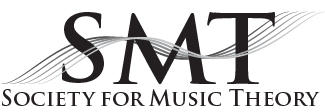MTO Editorial Policy
[1] MTO editorial policy
[1.1] We welcome submissions on topics of interest to a diverse music theory community. We look for work that makes a new contribution to scholarship, situates its argument within the existing published research, and is well organized and clearly written. Submissions must not have been published elsewhere nor be under consideration by any other journal while they are under review by MTO. The journal, in particular, encourages articles that take advantage of MTO’s online digital format. We also encourage submissions from authors of groups historically marginalized in our field. Authors might wish to make use of existing resources available for mentorship of articles prior to submission. These resources are administered through the Society for Music Theory’s Committee on Race and Ethnicity [link] and the Society’s Committee on the Status of Women [link].
[1.2] Items are published in the following categories: article, essay, commentary, review, report. An article is a presentation of scholarly research. An essay is an opinion piece on a general topic–for a good example, see Nathan John Martin’s “History for Theorists” in issue 25.3. A commentary is focused on a particular article or other published item, is generally short, and usually blends scholarship and opinion. MTO aims to publish timely reviews of scholarly books and textbooks. Here is more information. A report is description of an event, usually a conference–for a good example, see Timothy Koozin’s “Come Together: Fifty Years of Abbey Road” in issue 25.4.
[1.3] All items in a panel submission are expected to meet submission standards for peer-reviewed articles. Each item in the group will be treated as an individual submission and given a recommendation (accept, accept contingent on revisions, revise and resubmit, or reject). As per MTO’s editorial policy for individual submissions, readers’ reports and recommendations for all items in a panel submission are not binding: the editors of MTO make the final determination.
[1.4] MTO welcomes the submission of reports from conferences organized on special topics, rather than annual meetings of the Society for Music Theory or those of its regional affiliates. Any attendee(s) of a conference, including its organizer(s), can submit a conference report. Alternatively, the editor may solicit reports. Authors should communicate their intent to submit reports so that multiple authors do not simultaneously and unknowingly prepare reports. Conference reports are reviewed internally by the editor and associate editors, who may request revisions or clarifications before copy-editing and publication.
[1.5] Author Eligibility. Authors are not required to be current members of the Society for Music Theory in order to submit items. There are no fees for submission or publication. At no time may single authors have more than one single-authored paper and one joint-authored paper (panel submissions included) under review, under revision, accepted contingent on revisions, or in press.
[1.6] Anonymous review. All submissions to MTO are read “anonymously.” See the paragraph “Ensuring Anonymous Review” in the next section for details.
[1.7] As a publication of the Society for Music Theory, MTO’s work is overseen by the Publications Committee of the SMT. Authors who wish to redress editorial decisions or practices–for example, abusive tone, implicit or explicit bias, lack of justification or specificity for the criticisms, etc.–are encouraged to contact the chair of the Publications Committee listed [here].
[1.8] Disclaimer. Items published in Music Theory Online represent the positions, research, and views of their respective authors alone and do not necessarily represent the views of the Society for Music Theory, its officers, or its membership.
[1.9] Republication. Items published in MTO, particularly revised and expanded versions of works in progress, may be republished by their authors in a print journal or as a book chapter provided that one of the following statements is included in the republished version as appropriate:
This article was first published in Music Theory Online Vol/Issue (Year), http://www.mtosmt.org/issues/mto.XX.Y.Z/toc.Y.Z.html
This article is based on an article first published in Music Theory Online Vol/Issue (Year), http://www.mtosmt.org/issues/mto.XX.Y.Z/toc.Y.Z.htmlQuestions concerning the MTO editorial policy should be addressed to the editor ( mto-editor@societymusictheory.org).
